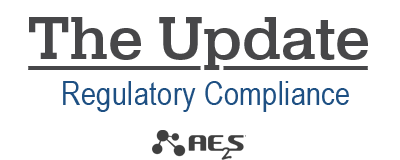The U.S. Environmental Protection Agency (USEPA) proposed a rule that would improve reporting on per- and polyfluoroalkyl substances (PFAS) to the Toxics Release Inventory (TRI) by eliminating an exemption that allows facilities to avoid reporting information on PFAS when those chemicals are used in small, or “de minimis,” concentrations. Since PFAS are used at low concentrations in many products, this rule would ensure that covered industry sectors and Federal facilities that make or use TRI-listed PFAS will no longer be able to rely on the de minimis exemption to avoid disclosing their PFAS releases and other waste management quantities for these chemicals. The proposed rule would eliminate the availability of the de minimis exemption and require facilities to report on PFAS regardless of their concentration in products.
The proposal advances the PFAS Strategic Roadmap developed by USEPA to confront the human health and environmental risks of PFAS. TRI data are reported to USEPA annually by facilities in certain industry sectors and Federal facilities that manufacture, process, or otherwise use TRI-listed chemicals above certain quantities. The data include quantities of such chemicals that were released into the environment or otherwise managed as waste. Information collected through TRI allows communities to learn how facilities in their area manage listed chemicals. The data collected also supports informed decision-making by companies, government agencies, non-governmental organizations, and the public.
The proposed rule would list PFAS as “chemicals of special concern,” which would make them ineligible for the de minimis exemption. If finalized, USEPA’s proposed rule would make the de minimis exemption unavailable for purposes of supplier notification requirements to downstream facilities for all chemicals on the list of chemicals of special concern, which also includes certain persistent, bioaccumulative, and toxic chemicals like lead, mercury, and dioxins.
Learn more about the proposed rule on USEPA’s website.

